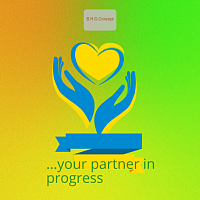Healthy Relationships And Family Life
Healing From Betrayal:A Guide To Recovery And Transformation
By Elijah Otong
Betrayal is a deeply painful experience that can upend our sense of security, trust, and self-worth. It is a wound that cuts deep, leaving us feeling raw, vulnerable, and shattered. The journey of healing from betrayal is a challenging and transformative one, but it is also a journey of resilience, growth, and self-discovery.
This article is a guide for those who have experienced betrayal and are seeking a path to healing, recovery, and transformation. Whether you have been betrayed by a partner, a friend, a colleague, or even yourself, the principles and strategies shared in this ebook can offer guidance, support, and hope.
Through exploring the nature of betrayal, understanding its impact on our mental and emotional well-being, and learning strategies for coping, forgiveness, and rebuilding trust, we will navigate the turbulent waters of betrayal and emerge stronger on the other side.
May this article be a companion on your healing journey, a source of comfort and guidance during times of darkness, and a reminder that healing and transformation are possible, even in the aftermath of betrayal? May you find solace, strength, and resilience as you embark on the path to healing and embrace the power of your healing and transformation.
Introduction:
Betrayal is a painful experience that can leave us feeling lost, hurt, and alone. Whether it's a betrayal by a loved one, a friend, a colleague, or even ourselves, the feelings of betrayal can shake us to our core and challenge our sense of trust, security, and self-worth.
But despite the pain and devastation that betrayal can bring, it is possible to heal and recover from it. In this article, we will explore the nature of betrayal, its effects on our mental and emotional well-being, and strategies for moving forward and finding healing and transformation
1. Understanding Betrayal
Here, we will discuss what betrayal is and the different forms it can take. Betrayal can come in many guises, such as infidelity, deception, dishonesty, or disloyalty. We will also explore the impact that betrayal can have on our mental and emotional health, including feelings of anger, sadness, shame, and mistrust.
2: Coping with Betrayal
In this section, we will explore coping strategies for dealing with the aftermath of betrayal. From processing and acknowledging our feelings to seeking support from friends, family, or a therapist, we will discuss healthy ways to express and manage our emotions. We will also explore the importance of self-care and compassion during this difficult time
3. Forgiveness and Healing from Betrayal
Betrayal can be a devastating experience, leaving us feeling hurt, angry, and lost. Forgiveness is not about condoning the betrayal or forgetting the pain it caused. Rather, it is about releasing the negative emotions that hold us back and allowing ourselves to heal.
Steps to Forgiveness:
Acknowledge the pain:Allow yourself to feel the full extent of your emotions. Don't suppress or deny them.
Understand the betrayal:Try to see the situation from the other person's perspective, without justifying their actions.
Set boundaries:Establish clear limits to protect yourself from further harm.
Practice self-care: Prioritize your well-being by engaging in activities that bring you joy and peace.
Seek support: Talk to a trusted friend, family member, or therapist for support and guidance.
Benefits of Forgiveness:
Reduced stress and anxiety: Holding onto anger and resentment can take a toll on our physical and mental health. Forgiveness can help us let go of these negative emotions.
Improved relationships:Forgiveness can pave the way for reconciliation and healing in relationships.
Personal growth: The process of forgiveness can teach us valuable lessons about ourselves and others.
Inner peace:Forgiveness allows us to move forward with our lives without the burden of bitterness and resentment.
Remember:
Forgiveness is a journey, not a destination. It takes time and effort.
Forgiveness does not mean forgetting or excusing the betrayal.
Forgiveness is for your benefit, not the other person's.
Healing from betrayal is possible, but it requires patience, self-compassion, and a willingness to forgive.
4. Rebuilding Trust After Betrayal
Rebuilding trust after betrayal is a challenging but necessary process. Here are some steps to help you navigate this journey:
Acknowledge the betrayal:Openly discuss the betrayal with the person who hurt you. This allows both parties to understand the extent of the damage and begin the healing process.
- **Take responsibility:** The person who betrayed your trust should take full responsibility for their actions and apologize sincerely.
Set clear boundaries:Establish clear expectations and limits to prevent future betrayals.
Communicate openly and honestly:Encourage open and honest communication to rebuild trust. This means being transparent about your feelings and needs.
Be patient and consistent:Rebuilding trust takes time and consistent effort. Don't expect to regain trust overnight.
Focus on the present:Dwelling on the past can hinder the healing process. Instead, focus on the present and the steps you can take to rebuild trust.
Seek professional help if needed:If you're struggling to rebuild trust on your own, consider seeking professional help from a therapist or counsellor.
Tips for the Betrayer:
Be patient and understanding:Rebuilding trust takes time and effort. Be patient with the person you betrayed and give them the space they need to heal.
Respect their boundaries:Understand and respect the boundaries that have been set. Don't push them or try to force their trust.
Be consistent and reliable:Show that you are committed to rebuilding trust by being consistent and reliable in your actions.
Apologize sincerely: Offer a sincere apology for your betrayal. Explain your actions and take responsibility for the pain you caused.
Remember:
Rebuilding trust is a two-way street. Both parties need to be committed to the process.
Trust is not easily regained. It takes time, effort, and a willingness to forgive.
If the betrayal was severe, it may not be possible to fully rebuild trust. However, it is still possible to move forward and create a new relationship based on honesty and respect.
5. Moving Forward
Finally, we will explore how to move forward and transform our pain and healing into growth and resilience. Betrayal can be a catalyst for personal growth and transformation, and by facing our pain and embracing our vulnerability, we can emerge stronger, wiser, and more compassionate. We will discuss strategies for moving forward with courage, grace, and self-compassion.
Conclusion
Healing from betrayal is a challenging and transformative journey, but it is possible with time, self-awareness, and support. By acknowledging our pain, seeking help when needed, and cultivating forgiveness and self-compassion, we can overcome the wounds of betrayal and emerge stronger, wiser, and more resilient. May this ebook be a guiding light on your journey to healing, and may you find peace, strength, and hope in the face of betrayal.


